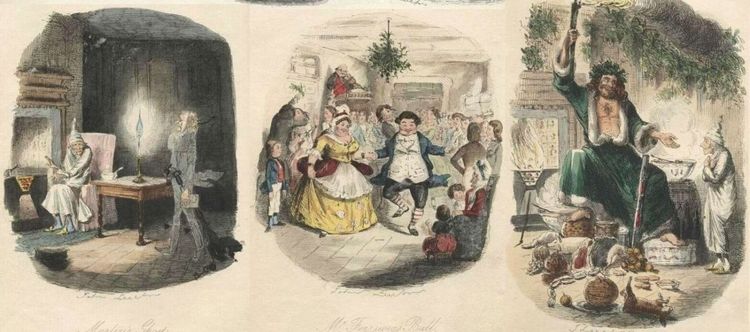


By Steve Sailer
05/14/2013
George F. Will writes:
On immigration, Charles Dickens mattersCharles Dickens’s “A Christmas Carol” is a gooey confection of seasonal sentiment. It also is an economic manifesto that Dickens hoped would hit with “twenty thousand times the force” of a political tract. It concerned a 19th-century debate that is pertinent to today’s argument about immigration.
This week, a disagreement between two conservative think tanks erupted when the Heritage Foundation excoriated the immigration reform proposed by a bipartisan group of eight senators. Heritage’s analysis argued that making 11 million illegal immigrants eligible, more than a decade from now, for welfare state entitlements would have net costs (benefits received minus taxes paid) of $6.3 trillion over the next 50 years.
Fifty-year projections about this or that are not worth the paper they should never have been printed on — think of what 1963 did not know about 2013.
Better question when it comes to immigration policy: "think of what 1965 did not know about 2013."
… The libertarian Cato Institutesaid that Heritage insufficiently acknowledged immigration’s contributions to economic growth (new businesses, replenishing the workforce as baby boomers retire, etc.). This dynamism, Cato argued, will propel immigrants’ upward mobility, reducing the number eligible for means-tested entitlements.Conservatives correctly criticize those who reject “dynamic scoring” of tax cuts. …
Which brings us to Dickens’s revolt against Thomas Malthus’s pre-capitalist pessimism about the possibility of growth and abundance.
Okay, the notion that Dickens wrote the story of Scrooge to promote the Cheap Labor Lobby is pretty funny. To give Will some credit, it’s a complicated subject. But, he’s got it mostly backward. What increased Victorian English productivity was not an influx of labor from abroad, but a decrease of the supply of labor, due to emigration and to, finally, cracking down on child labor. Parliament debated setting a minimum age for little boys to sweep chimneys (from the inside) from 1788 onward.
As I wrote in VDARE in 2007:
Shaftesbury finally succeeded in passing effective legislation in 1875.
And, of course, that winter everyone in Britain froze to death due to clogged chimneys.
Oh, wait … sorry, that was in Bizarro Britain, where the reigning interpretations of economics actually applied. Rather like in Senator Kennedy’s Abnormal America, where nobody will be able to afford to eat chicken without the Liberal Lion’s amnesty and guest worker programs.
In the real Britain, however, the master chimney sweeps quickly found other ways to clean chimneys.
And, equally, Americans will not starve if they are deprived a continuous influx of uneducated foreigners.
What we've learned since the early Victorian Era is that the world works in ways more responsive to intelligent effort than was imagined by Thomas Malthus:
High wages can often spur technological advances that more than make up for their costs.
The key to economic prosperity is not low wages but high human capital.
In contrast to Dickensian England, with its Scrooge-like obsession with cheap labor, Americans traditionally enjoyed high wages because the country was underpopulated relative to its natural resources. This inspired American entrepreneurs to invest in labor-saving innovations, which, in a virtuous cycle, allowed even higher wages to be paid.
The most famous example: Henry Ford doubling his workers' salaries in 1914 after inventing the moving assembly line.
In the long run, the cheap labor obsession debilitated the English economy. After the brilliant innovations of the early Industrial Revolution, the English textile industry tended to stagnate. Paul Johnson explains:
"Factories paid higher wages than domestic industries; all the same, they were very low, chiefly because most of the factory hands were women and children. Low wages kept home consumer demand down; worse still, they removed the chief incentive to replace primitive machinery by the systematic adoption of new technology."
And then there was the long run impact on Britain’s economic culture:
"State limitations of human exploitation came too late, and were too ineffective, to make the quest for productivity a virtue; the English did not discover it until the twentieth century, by which time the trade union movement had constructed powerful defenses against it."
Victorian Scroogeonomics helped engender its own nemesis. It drove the British working class far to the left of the American working class, leading to both the nationalization of major industries in the 1940s and a hatred of productivity improvements among unions, exemplified in the 1959 Peter Sellers' movie I’m All Right, Jack. The effects on the U.K. economy were disastrous.